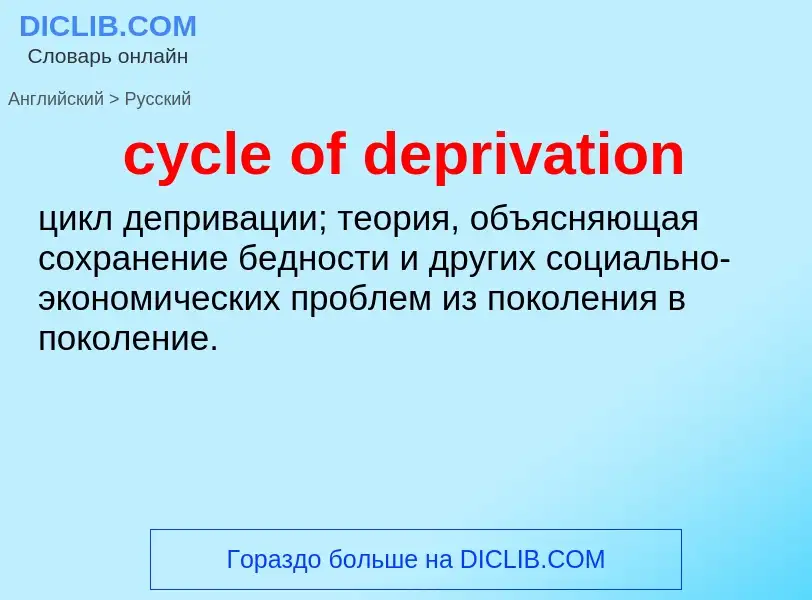Traducción y análisis de palabras por inteligencia artificial ChatGPT
En esta página puede obtener un análisis detallado de una palabra o frase, producido utilizando la mejor tecnología de inteligencia artificial hasta la fecha:
- cómo se usa la palabra
- frecuencia de uso
- se utiliza con más frecuencia en el habla oral o escrita
- opciones de traducción
- ejemplos de uso (varias frases con traducción)
- etimología
cycle of deprivation - traducción al ruso
Definición
.
Wikipedia
Relative deprivation is the lack of resources to sustain the diet, lifestyle, activities and amenities that an individual or group are accustomed to or that are widely encouraged or approved in the society to which they belong. Measuring relative deprivation allows an objective comparison between the situation of the individual or group compared to the rest of society. Relative deprivation may also emphasise the individual experience of discontent when being deprived of something to which one believes oneself to be entitled, however emphasizing the perspective of the individual makes objective measurement problematic.
It is a term used in social sciences to describe feelings or measures of economic, political, or social deprivation that are relative rather than absolute. The term is inextricably linked to the similar terms poverty and social exclusion. The concept of relative deprivation has important consequences for both behaviour and attitudes, including feelings of stress, political attitudes, and participation in collective action. It is relevant to researchers studying multiple fields in social sciences. The concept was first used systematically by the authors of The American Soldier who studied army units and found out that it is the perceived discrepancy between anticipation and attainment which results in feelings of relative deprivation.
Social scientists, particularly political scientists and sociologists, have cited relative deprivation, especially temporal relative deprivation, as a potential cause of social movements and deviance, leading in extreme situations to political violence such as rioting, terrorism, civil wars and other instances of social deviance such as crime. For example, some scholars of social movements explain their rise by citing grievances of people who feel deprived of what they perceive as values to which they are entitled. Similarly, individuals engage in deviant behaviours when their means do not match their goals.
In response to exploration of the concept of relative deprivation, the term "relative gratification" has emerged in social psychology to discuss the opposite phenomenon.


![[[Sister Irene]] at her New York Foundling Hospital in the 1890s [[Sister Irene]] at her New York Foundling Hospital in the 1890s](https://commons.wikimedia.org/wiki/Special:FilePath/Children at New York Foundling cph.3a23917.jpg?width=200)



